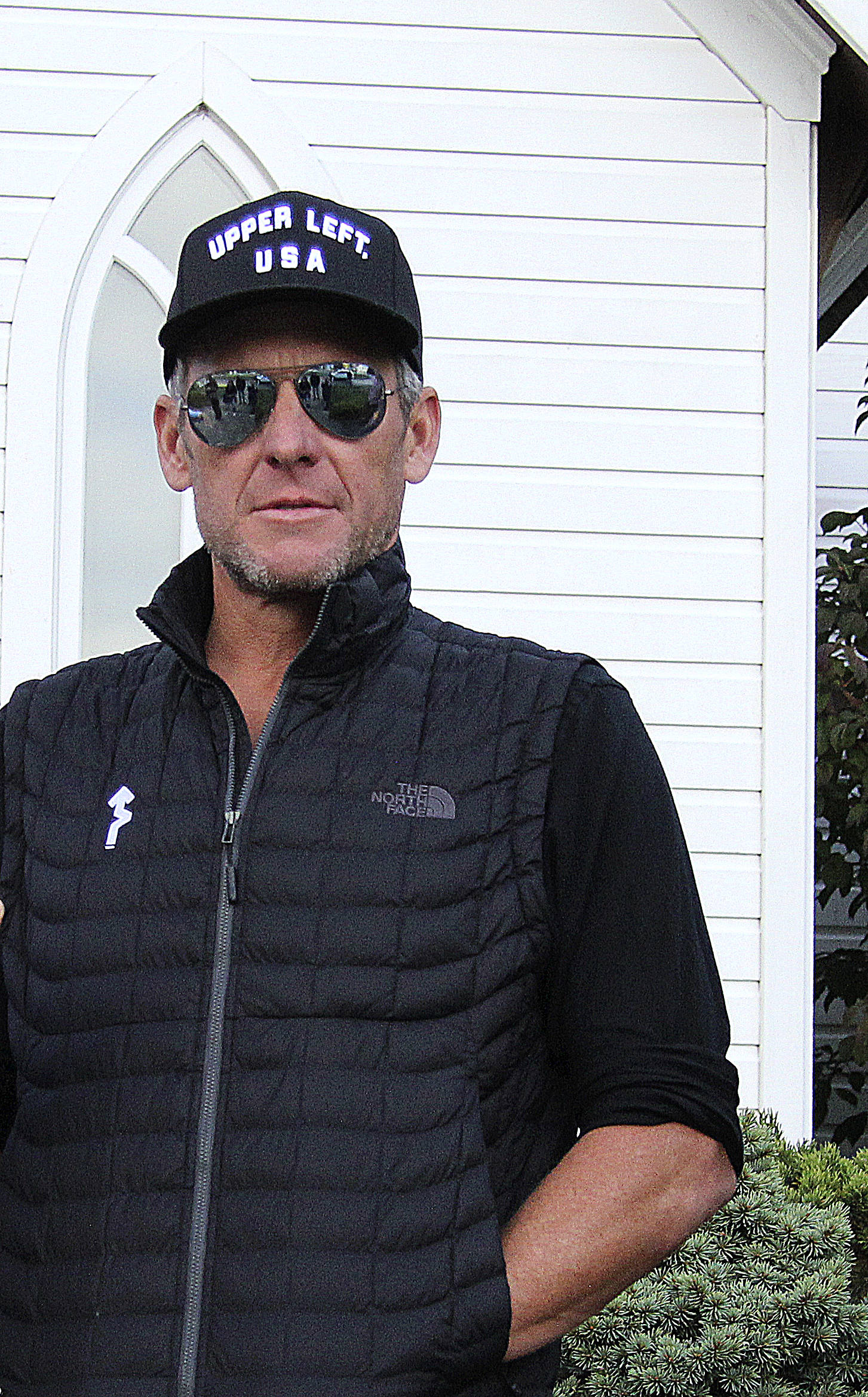Lance Armstrong believes in always moving forward – whether he’s facing a potentially fatal cancer diagnosis or allegations of drug abuse.
“If you fall off and quit forever … that can be a lesson all your life,” he told a group of Orcas Christian School students during an impromptu gathering in the campus chapel.
The famed cyclist visited Orcas Island for a SwimRun USA competition, in which he came in third. The Sept. 23 race consisted of 18 miles of trail running and 2.5 miles of swimming in primarily two-person teams.
“You can be a competitor or a participant. At this point in my life, I am a participant,” he said.
Armstrong, who is a friend of OCS co-founder Mike Parnell, agreed to chat with the students before he left on Sept. 24. Parnell, former CEO of Oakley Sunglasses, has known Armstrong since he was a young teen, and the company became one of his sponsors.
Initially proficient in swimming, Armstrong switched to triathlons at age 13. He was competing professionally by 15, and began his cycling career in 1992 at age 21.
In his late teens, he moved to Europe, where he and his teammates learned how to navigate through a foreign country – without the aid of the internet or cell phones.
“We were put in a place that was like going to Mars,” he said.
When Armstrong was diagnosed with stage 3 testicular cancer in October 1996, he didn’t have health insurance. Through his friendship with Parnell, Oakley agreed to cover medical expenses.
Armstrong’s cancer had spread to his brain, lungs and abdomen. He underwent a rigorous treatment program that included a combination of drugs, chemotherapy and surgery. By early 1997, he was declared cancer-free. That same year he founded the Lance Armstrong Foundation, which supports those affected by cancer.
“When I got sick and lost my job from the French (cycling) team, no one would take me,” he said. “Yes, physiologically I changed but also I had determination. No one believed in me. I wanted to do the Tour de France and people were laughing at me. But people were laughing at me anyway.”
He won the Tour de France each year from 1998 to 2005, when he retired. He returned three years later (finishing third in the 2009 Tour de France) and retired for a second time in 2011. The following year, the United States Anti-Doping Agency concluded Armstrong used performance-enhancing drugs over the course of his career. The agency stripped him of his achievements from 1998 onward, including the seven Tour de France titles, and banned him from all sports that follow the World Anti-Doping Code.
An OCS teacher in the audience queried Armstrong about his drug use.
“Were you so obsessed with your goal that it superseded any guilt? What kept you from having a conscience?” she asked.
Armstrong explained that during the height of his career, “you either used drugs or you’d go home.” He said only a small handful of participants chose the latter.
“Twenty-three years ago, the sport was like the wild west,” he said. “Nobody thought they were cheating. We were all doing the same thing. … I’m still processing a lot of it.”
When the drug scandal broke, Armstrong says he went from “hero to zero,” and that he could have curled up and given in to darker forces. Instead, he stayed “quiet and calm.”
“No matter what happens, you just have to move forward,” he said.
Now, Armstrong runs two bikes shops and records a podcast called “The Forward,” where he speaks to such guests as Malcolm Gladwell and Neil deGrasse Tyson. Armstrong says he conducts extensive research to prepare for the interviews.
“For the first time in my life, I’ve done homework – and I’ve enjoyed it,” he laughed.



